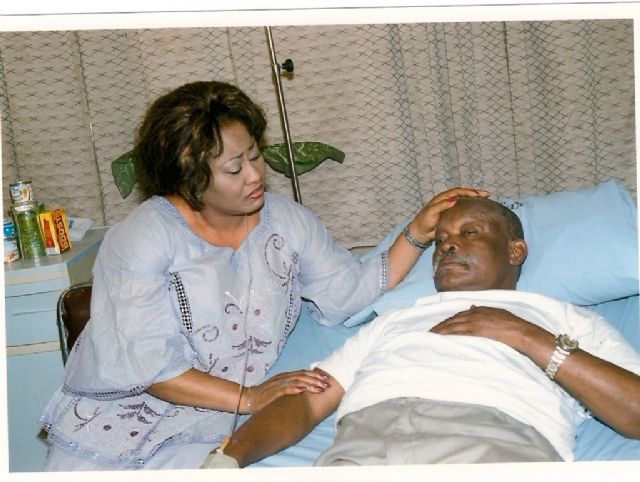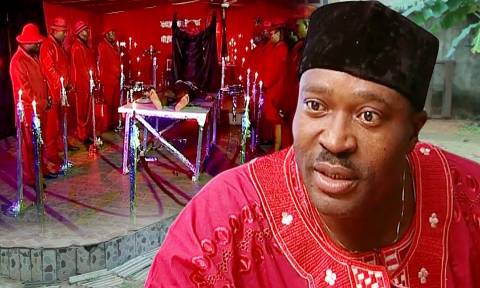
Until recently, the word ‘cinema’ was an outdated footnote in Nigeria’s entertainment history. But out of the blues, the cinemas sneaked back, taking everyone by surprise. OSEYIZA OOGBODO explores Nigerians’ revived relationship with the cinemas.
Odeon, Roxy, Scala, Pen… Nigerians of a certain age bracket grew up on these names. And many can remember evenings spent in the dark confines of these cinema houses in utter bliss after being transported into other worlds through movies. Then suddenly, the cinema culture began to wane and the cinema business died out after bravely ‘gasping for salvation’ for many years. But just when everyone thought the word ‘cinema’ was an outdated footnote in Nigeria’s entertainment history, the cinema culture returned. Nigerians began to flock to cinemas in droves on a daily basis to see the movies on offer.
Ozone, Silverbird, Genesis Deluxe are the new names, with a seeming concentration in Lagos, the pulsating heartbeat of Nigeria. Cities such as Abuja and Port Harcourt also boast of cinemas where residents are reviving their love for the cinemas. Despite the changing fortunes of the cinema business, some Nigerians still prefer to get their movies on DVD for as little as N100 and watch them in the comfort of their homes. Some even download them free on the internet. But a fast growing number of people prefer to go to the cinemas to watch movies. So what attracts these people to the cinemas where they have to part with as much as N1, 500 sometimes to see movies they can buy with peanuts and see in the comfort of their homes? Ijeoma Nwuka is a student at the University of Lagos. She goes to Ozone Cinemas at least two times in a week. The major attraction for her is the big screen that makes watching a movie so lifelike that it seems as if she’s actually living it. Another University of Lagos student, Temitope Aina, says Nigerian movies are what attract her to the cinemas, especially those starring Genevieve Nnaji. “I love Genevieve. I love everything about her. I like her carriage, the way she talks; I even like the fact that people think she’s proud.”
According to Aina, N1, 500 charged by the cinemas to see a single movie is on the high side. “That amount is unreasonable just to see one movie. We students pay N500 on weekdays. I think that is just reasonable.” Echoing Nwuka, Aina says, “The difference between coming to the cinema and watching a movie at home is that the cinema screen is so large that it makes the movie more real.” Maduka Ikechukwu, another student believes what the cinemas charge is fair. He says, “By Nigeria’s standard, what the cinemas charge is fair. I prefer to watch comedies and any movie that looks new and interesting.
The pull for most people to the cinema is the big screen, but premieres are also a big pull for even more people because the premiere showing of a movie is the first time ever it will be shown so premieres are very exciting and a great attraction.” Patrick Lee, General Manager of Ozone Cinemas, has a lot to say about the returning cinema culture. He says: “Presently, we get a minimum of 800 – 1,000 customers every day and we have double of that on public holidays. While Silverbird and Genesis Deluxe Cinemas are on Lagos Island, Lee says Ozone Cinemas was purposefully situated in Yaba on the Mainland. We don’t want the cinema market to be just a Lagos Island thing and we want it to spread, all over Lagos and the nation, that’s why we sited Ozone in Yaba.
Ozone has played a great part in reviving the cinema culture. However, we cannot deny the fact that Silverbird Cinemas pioneered the return of cinemas to Nigeria. They deserve the credit for the return. The effect of Nollywood cannot also be discounted. Nollywood was a powerful figure in the decision to bring cinemas back to Nigeria.” Despite its huge role in the return of the cinema culture, however, the bulk of movies shown in cinemas are not Nollywood movies. “The reason is that Nollywood shoots lots of movies but not movies meant specifically for cinemas. Nollywood movies are meant mainly for home viewing. They are on DVD and cinemas cannot show DVD movies because of copyright issues,” says Lee “Nollywood has to shoot its movies in better formats like HD, HDV Cam and 35mm. For instance, Ije was shot in the US and converted from HDV Cam to celluloid.
Ije is our biggest movie. Over 14,000 people have seen it. The good thing about the cinemas is that they are making Nollywood see the reason to shoot in better formats. Though we show mainly foreign movies, if Nigerian movies have a good script, are shot in a good format, star well-known faces and are well-produced and directed, they will sell at the cinemas. The vogue in movies and cinemas now is 3D, a technology that Ozone doesn’t have yet. We plan on having 3D cinema halls soon, before the year is over. But for now, we show 3D movies on the regular 2D, only that the viewer won’t get the 3D viewing effect.” Lee is very optimistic about the future of the cinema culture in Nigeria. “Ozone Cinemas intends to be a major player in the cinema market and to open more cinemas in Lagos and Nigeria. We expect that Nollywood will soon be at par with Hollywood and that our cinemas also will be at par with the rest of the world.”
According to him, the major impediment in the path of Nigeria’s cinemas is the technical base. “Cinemas are not easy to sustain. They are very capital intensive and we’re still in our infancy, our industry is just about seven years old now. “However, our main hitch is that we don’t have the technical base yet. Presently, we are not manufacturing in Nigeria everything the cinemas use. So we have to resort to foreign technicians to solve the problems we encounter. We are trying to overcome that problem by training our staff now.” Saying that he sees cinemas becoming an essential part of Nigeria’s recreational culture, Lee says he is pleased by President Jonathan’s $200m grant to the entertainment industry and he hopes that it would be evenly disbursed in the entertainment industry, thereby including the cinemas too. Ayo is the box office manager of Silverbird Galleria, the pioneers of the new, revived cinema business in Nigeria.
According to him, “The cinema culture died in Nigeria as a result of a poor economy and the military leadership. The advent of home video also contributed to the death of cinemas in Nigeria back then. With the coming of VHS players that could play video cassettes, people preferred to stay at home and watch their favourite Indian movies. When all the early cinemas finally died out in the late 90s, Nigerians satisfied their great appetite for watching current movies on TV stations like LTV and DBN that showed such movies every weekend. “The TV stations created a hunger in people to watch American movies, and it was this hunger that Silverbird Cinemas capitalized on to go into the cinema business. Considering that people wanted to watch the latest American movies as at when released, Silverbird Cinemas decided to fill the gap, something the TV stations couldn’t do,” Ayo asserts. “It wasn’t just about current movies though.
The concept behind Silverbird Cinemas is also to bring the total American experience to Nigeria. The American experience in terms of the latest cinema technology in America, the movies in American cinemas, the sort of excitement in the air in American cinemas and all that. “Also, when people go to cinemas in the developed world, it’s a family affair, unlike here that it’s basically for lovers. So Silverbird Cinemas was also established as a resort where families can hang out in a secure atmosphere.” Despite Silverbird Cinemas intention to deliver the American experience all the time, Ayo admits that just like Ozone Cinemas, they don’t have 3D cinema halls. “When we started Silverbird Cinemas, we had the cinema technology that was in vogue then. But we already have the 3D technology and our 3D halls will be ready before 2011 runs out. Indeed, we plan to install our 3D cinema hall installed in March.” Ayo also defended the price of tickets in Silverbird Cinemas. “When we started in 2004, movie tickets were strictly N2, 000. So as to accommodate people who were saying the cinemas are for only the elites, we brought them down to N1, 500 for weekends and N1, 000 for weekdays and N500 for students with valid ID cards on weekdays. “Our ticket prices are fair enough for the sort of modern facilities we have.
There are also many other factors involved in determining the ticket prices. For instance, we pay for the movies we show. They are not free. We get the movies through distributors and we pay for them. Also, power is a very big problem. We use our generators on virtually a 24-hour basis and you know what that means in terms of overhead.” Despite the problems in the path of the cinema industry, Silverbird Cinemas continues to expand. “It’s a viable business,” Ayo affirms. “We get 1,000 to 2,000 visitors every day. On very busy days, the number of visitors goes up to 3,000. Here in Lagos, we have five halls. In Abuja, we have twelve and in Port Harcourt, eight. We recognize that Lagos is Nigeria’s nerve centre, but Abuja is coming up fast. But the basic reason we have more halls in Abuja and Port Harcourt is because in business, you have to develop on what you are doing. So we had to build more halls in Abuja and Port Harcourt because when we started in Lagos, it was a sort of test. We also intend to continue developing in our expansion and we presently have cinemas in Ghana and Kenya.”
Though the Silverbird Cinemas kicked off with the concept of the American experience, they also show movies made in Nigeria. “We show only Nigerian movies that are very good. The problem we have with showing Nigerian movies is that they are not in celluloid which is the best quality. One of Nigeria’s movies shot in celluloid is Ije. Figurine isn’t in celluloid but it has a good story and overall quality. Lighting too is very important in movies and Nigerian movies are still deficient in all the qualities that make a good movie.” Echoing Lee’s assertion that the cinemas are a challenge to Nigerian movie producers to make better movies, Ayo said, “Many Nigerian movie producers come to Silverbird Cinemas to watch and learn. The cinemas have exposed Nigerians to quality so Nigerian movie makers realize they have to step up their game because they know Nigerians can now compare the aesthetic qualities of our movies and those of the developed world.”



















